
Language & Currency
Free Shipping
on all orders above $200
Free Pills
with every order
1,000,000 customers
quality, privacy, secure
Low prices
best price on the web
Catalog
-
Bestsellers
- Viagra $0.27
- Cialis $0.68
- Kamagra Oral Jelly $3.94
- ED Sample Pack 1 $2.31
- Brand Viagra $1.77
- Cenforce $0.27
- Stromectol $2.64
- Clomid $0.44
- Doxycycline $0.3
- Propecia $0.51
- Levitra $1
- Amoxil $0.39
- Viagra Professional $0.57
- Prednisone $0.3
- Brand Cialis $3.09
- Dapoxetine $0.95
- Zithromax $0.55
- Nolvadex $0.52
- Cytotec $1.7
- Cialis Professional $1.2
- Kamagra $0.9
- Viagra Super Active $1.25
- Extra Super Viagra $2.86
- Cialis Extra Dosage $2.05
- Cialis Soft $1.11
- Viagra Soft $0.91
- Cipro $0.22
- Cialis Super Active $1.32
- Extra Super Cialis $3.06
- Female Viagra $0.68
- Lasix $0.25
- Zoloft $0.28
- Tadapox $1.08
- Propranolol $0.27
- Xenical $0.79
- Prednisolone $0.32
- Metformin $0.26
- Antabuse $0.43
- Sildalis $0.95
- Valtrex $2.66
- ED Sample Packs
-
Erectile Dysfunction
- Viagra $0.27
- Cialis $0.68
- Levitra $1
- Brand Viagra $1.77
- Brand Cialis $3.09
- Brand Levitra $3.71
- Sildalis $0.95
- Silvitra $2.8
- Dapoxetine $0.95
- Kamagra $0.9
- Kamagra Polo $1.58
- Kamagra Effervescent $25.56
- Kamagra Super $2.98
- Malegra FXT $1.16
- Malegra FXT Plus $1.34
- Malegra DXT $1.16
- Malegra DXT Plus $1.33
- Tadapox $1.08
- Extra Super Viagra $2.86
- Extra Super Cialis $3.06
- Extra Super Levitra $2.98
- Super Viagra $2.73
- Super Cialis $1.08
- Super Levitra $2.51
- Viagra Super Active $1.25
- Cialis Super Active $1.32
- Levitra Super Active $1.2
- Viagra Professional $0.57
- Cialis Professional $1.2
- Levitra Professional $2.8
- Viagra Extra Dosage $1.95
- Cialis Extra Dosage $2.05
- Levitra Extra Dosage $2.44
- Viagra Soft $0.91
- Cialis Soft $1.11
- Levitra Soft $1.02
- Avana $3.06
- Top Avana $3.13
- Super Avana $4.91
- Extra Super Avana $6.98
- Tadacip $0.96
- Nizagara $0.85
- Viagra Plus $0.66
- Levitra Plus $0.73
- Silagra $0.65
- Tadalis SX $1.39
- Viagra Jelly $2.14
- Cialis Jelly $2.96
- Levitra Jelly $4.43
- Zenegra $0.59
- Cialis Sublingual $1.16
- Viagra Sublingual $0.74
- Suhagra $0.6
- Apcalis SX $1.76
- Caverta $4.6
- Forzest $4.99
- Himcolin $30.25
- Viagra Soft Flavoured $2.21
- Super P-Force $2.73
- Super P-Force Oral Jelly $6.36
- Erectafil $1.31
- Tadala Black $1.63
- Cialis Black $1.18
- Red Viagra $2.59
- Viagra Vigour $2.59
- Eriacta $1.2
- Fildena $0.73
- Aurogra $0.77
- Sildigra $0.69
- Tadora $1.18
- Zudena $6.86
- Vidalista $0.68
- Cenforce $0.27
- Cenforce Professional $0.91
- Cenforce Soft $0.95
- Cenforce-D $2.78
-
Allergies
- Alavert $0.44
- Allegra $0.27
- Aristocort $0.93
- Astelin $22.57
- Atarax $0.36
- Beconase AQ $29.35
- Benadryl $1.73
- Clarinex $0.55
- Claritin $0.4
- Decadron $0.35
- Deltasone $0.29
- Entocort $40.13
- FML Forte $19.46
- Flonase $28.61
- Haridra $50.14
- Nasonex nasal spray $29.07
- Periactin $0.45
- Phenergan $0.38
- Prednisolone $0.32
- Prednisone $0.3
- Promethazine $0.64
- Quibron-t $0.43
- Rhinocort $32.61
- Seroflo $83.31
- Zyrtec $1.08
- Anti Fungal
- Anti Viral
-
Antibiotics
- Amoxil $0.39
- Ampicillin $0.24
- Augmentin $0.99
- Bactrim $0.34
- Biaxin $2.4
- Brand Amoxil $0.57
- Cefadroxil $0.98
- Cefixime $2.86
- Ceftin $1.79
- Cephalexin $1.32
- Chloramphenicol $0.46
- Chloromycetin $0.35
- Ciplox $1.22
- Cipro $0.22
- Cleocin $2.03
- Clindamycin $1.08
- Doxycycline $0.3
- Erythromycin $0.43
- Flagyl ER $0.26
- Floxin $0.37
- Fosfomycin $33.6
- Fucidin $24.85
- Keflex $0.89
- Keftab $0.57
- Ketoconazole Cream $16.67
- Lquin $1.24
- Minocin $1.85
- Minocycline $2.33
- Minomycin $1.76
- Myambutol $0.29
- Nitrofurantoin $0.43
- Noroxin $0.38
- Omnicef $3.15
- Panmycin $0.64
- Roxithromycin $0.78
- Stromectol $2.64
- Sumycin $0.27
- Suprax $0.95
- Terramycin $0.27
- Tetracycline $0.29
- Tinidazole $0.83
- Trimox $0.34
- Vantin $1.9
- Zithromax $0.55
- Zyvox $7.13
- Anxiety
- Arthritis
-
Asthma
- Advair Diskus $62.49
- Astralean $2.04
- Beconase AQ $29.35
- Benadryl $1.73
- Claritin $0.4
- Decadron $0.35
- Deltasone $0.29
- Entocort $40.13
- FML Forte $19.46
- Haridra $50.14
- Medrol $0.69
- Nasonex nasal spray $29.07
- Prednisolone $0.32
- Prednisone $0.3
- Promethazine $0.64
- Proventil $23.98
- Quibron-t $0.43
- Rhinocort $32.61
- Seroflo $83.31
- Singulair $0.97
- Ventolin $21.85
- Birth Control
-
Blood Pressure
- Aceon $1.09
- Adalat $0.27
- Aldactone $0.73
- Altace $0.7
- Avalide $1.25
- Avapro $0.7
- Benicar $0.45
- Betapace $0.73
- Bystolic $0.75
- Calan $0.33
- Cardizem $0.42
- Cardura $0.29
- Clonidine $0.26
- Coreg $1.32
- Coumadin $0.29
- Cozaar $0.79
- Digoxin $0.43
- Diovan $0.91
- Dipyridamole $0.33
- Doxazosin $0.33
- Furosemide $0.34
- Hydrochlorothiazide $0.28
- Hytrin $0.73
- Hyzaar $0.52
- Inderal $0.26
- Innopran XL $0.9
- Isoptin $0.39
- Lanoxin $0.4
- Lasix $0.25
- Lisinopril $0.37
- Lopressor $0.68
- Lozol $0.66
- Micardis $1
- Midamor $0.39
- Moduretic $0.7
- Nitroglycerin $0.91
- Norvasc $0.3
- Plavix $0.72
- Plendil $0.38
- Prazosin $0.96
- Prinivil $0.2
- Serpina $25.91
- Tenormin $0.31
- Toprol XL $0.68
- Torsemide $0.34
- Trandate $1.08
- Vasodilan $0.5
- Vasotec $0.51
- Zebeta $0.28
- Zestoretic $0.92
- Zestril $0.31
- Cholesterol Lowering
-
Depression
- Abilify $0.55
- Amitriptyline $0.33
- Anafranil $0.32
- Bupron SR $1.49
- Bupropion $0.83
- Celexa $0.29
- Citalopram $0.54
- Clozaril $0.27
- Cymbalta $0.7
- Desyrel $0.37
- Effexor XR $0.61
- Elavil $0.36
- Emsam $0.97
- Endep $0.35
- Isoniazid $0.38
- Lexapro $0.27
- Lithium $0.26
- Pamelor $0.52
- Paroxetine $0.74
- Paxil $0.6
- Pristiq $1.9
- Remeron $0.89
- Sinequan $0.27
- Trazodone $0.71
- Venlor $0.95
- Wellbutrin $1.76
- Wellbutrin SR $0.84
- Zoloft $0.28
- Zyban $0.59
- Diabetes
-
Gastrointestinal
- Aciphex $0.56
- Allopurinol $0.67
- Bentyl $0.48
- Biaxin $2.4
- Brand Amoxil $0.57
- Cytotec $1.7
- Decadron $0.35
- Deltasone $0.29
- Diarex $24.87
- Ditropan $2.3
- Doxazosin $0.33
- Florinef $1.03
- Gasex $25.42
- Hytrin $0.73
- Lasuna $25.7
- Metoclopramide $0.57
- Motilium $0.27
- Nexium $0.43
- Nitrofurantoin $0.43
- Noroxin $0.38
- Pariet $0.4
- Prednisolone $0.32
- Prevacid $0.42
- Prilosec $0.49
- Protonix $0.37
- Pyridium $0.74
- Ranitidine $0.3
- Reglan $0.37
- Renagel $3
- Roxithromycin $0.78
- Torsemide $0.34
- Zantac $0.15
- Hair Loss
-
Heart Disease
- Abana $28.06
- Albendazole $0.34
- Aldactone $0.73
- Altace $0.7
- Atorlip-10 $0.74
- Atorlip-20 $2.03
- Atorlip-5 $0.44
- Betapace $0.73
- Bystolic $0.75
- Calan $0.33
- Cardizem $0.42
- Coreg $1.32
- Digoxin $0.43
- Diovan $0.91
- Plavix $0.72
- Prednisolone $0.32
- Prinivil $0.2
- Procardia $0.75
- Propranolol $0.27
- Tenormin $0.31
- Toprol XL $0.68
- Torsemide $0.34
- Vasotec $0.51
- Zestril $0.31
-
Herbals
- Abana $28.06
- Ashwagandha $21.52
- Ayurslim $34.87
- Brahmi $21.65
- Confido $21.34
- Diabecon $36.3
- Diarex $24.87
- Evecare $35.08
- Gasex $25.42
- Geriforte $30.98
- Geriforte Syrup $25.91
- Haridra $50.14
- Himcolin $30.25
- Himplasia $22.14
- Hoodia $1.29
- Lasuna $25.7
- Liv 52 $24.2
- Mentat $24.79
- Mentat DS syrup $35.86
- NPXL $24.18
- Picrolax $20.36
- Pilex $31.1
- Renalka $25.1
- Rumalaya $21.69
- Rumalaya forte $22.28
- Rumalaya gel $22.72
- Rumalaya liniment $22.43
- Serpina $25.91
- Shallaki $21.37
- Shuddha Guggulu $30.71
- Slip Inn $1.55
- Speman $21.43
- V-gel $23.65
-
Men's Health
- Avodart $0.67
- Cardura $0.29
- Cenforce $0.27
- Cenforce Professional $0.91
- Cenforce Soft $0.95
- Cenforce-D $2.78
- Confido $21.34
- Dapoxetine $0.95
- Doxazosin $0.33
- Dutas $1.74
- Eulexin $1.38
- Finast $2.02
- Finax $0.89
- Fincar $1.44
- Finpecia $0.5
- Flomax $0.73
- Himplasia $22.14
- Hytrin $0.73
- Kamagra Chewable $3.95
- Kamagra Gold $2.24
- Kamagra Oral Jelly $3.94
- Kamagra Soft $4
- Levitra Soft $1.02
- Levothroid $0.34
- Malegra DXT $1.16
- Malegra FXT $1.16
- Malegra FXT Plus $1.34
- NPXL $24.18
- Noroxin $0.38
- Penegra $3.24
- Pilex $31.1
- Proscar $1.04
- Rogaine 5 $38
- Sildalis $0.95
- Speman $21.43
- Tadapox $1.08
- Uroxatral $1.48
- VPXL $32.41
- Vidalista $0.68
- Vimax $30.15
-
Muscle Relaxant
- Baclofen $0.61
- Colospa $0.87
- Imitrex $4.19
- Imuran $0.85
- Lioresal $0.7
- Mestinon $1.51
- Nimotop $0.95
- Pletal $0.87
- Ponstel $0.32
- Robaxin $0.42
- Rumalaya $21.69
- Rumalaya forte $22.28
- Rumalaya gel $22.72
- Rumalaya liniment $22.43
- Shallaki $21.37
- Skelaxin $1.56
- Tegretol $0.5
- Tizanidine $2.4
- Urispas $1.08
- Voveran $0.42
- Voveran sr $0.17
- Zanaflex $0.8
-
Other
- Abilify $0.55
- Actonel $5.81
- Albenza $0.36
- Allopurinol $0.67
- Amantadine $0.7
- Antabuse $0.43
- Antivert $0.34
- Arava $1.24
- Aricept $0.74
- Asacol $0.98
- Betoptic $10.36
- Brahmi $21.65
- Chloroquine $1.13
- Clexane $128.43
- Clozaril $0.27
- Combivent $38.17
- Compazine $0.33
- Copegus $3.76
- Coumadin $0.29
- Cyklokapron $2.07
- Cytoxan $1.18
- Depakote $0.73
- Detrol $0.99
- Dilantin $0.48
- Diltiazem $0.72
- Dramamine $0.58
- Dulcolax $0.43
- Duphalac $31.54
- Eldepryl $0.68
- Epivir-HBV $0.87
- Exelon $0.59
- Flonase $28.61
- Haldol $1.42
- Hydrea $1.52
- Indinavir $3.44
- Isoniazid $0.38
- Kaletra $4
- Kemadrin $0.79
- Keppra $1.74
- Kytril $1.84
- Lamictal $0.94
- Liv 52 $24.2
- Meclizine $0.4
- Meldonium $0.77
- Mentat $24.79
- Mentat DS syrup $35.86
- Methotrexate $1.27
- Midamor $0.39
- Minomycin $1.76
- Naltrexone $6.69
- Neurontin $0.55
- Nootropil $1.02
- Olanzapine $0.68
- Oxytrol $0.83
- Picrolax $20.36
- Plaquenil $2.4
- Reminyl $2.97
- Renalka $25.1
- Requip $0.48
- Risperdal $1.27
- Rocaltrol $1.5
- Seroquel $0.67
- Sinemet $0.84
- Solian $2.55
- Strattera $0.51
- Synthroid $0.19
- Topamax $1.83
- Trileptal $0.66
- V-gel $23.65
- Victoza $430.84
- Xalatan $47.86
- Zofran $0.34
- Zyloprim $0.31
- Zyprexa $0.3
-
Pain Relief
- Aleve $0.73
- Anacin $0.43
- Arcoxia $0.65
- Artane $0.43
- Aspirin $20.39
- Azulfidine $0.72
- Cafergot $0.63
- Colospa $0.87
- Diclofenac Gel $6.94
- Elavil $0.36
- Imitrex $4.19
- Imuran $0.85
- Lioresal $0.7
- Maxalt $7.05
- Mestinon $1.51
- Mobic $0.28
- Motrin $0.78
- Naprosyn $0.71
- Nimotop $0.95
- Periactin $0.45
- Phenergan $0.38
- Pletal $0.87
- Ponstel $0.32
- Prednisone $0.3
- Pyridium $0.74
- Rizact $5.72
- Rumalaya $21.69
- Rumalaya forte $22.28
- Rumalaya gel $22.72
- Rumalaya liniment $22.43
- Shallaki $21.37
- Tegretol $0.5
- Tizanidine $2.4
- Toradol $0.4
- Trental $0.55
- Urispas $1.08
- Voltaren $0.27
- Voveran $0.42
- Voveran sr $0.17
-
Skincare
- Accutane $0.56
- Acticin $10.8
- Aldara $23.59
- Bactroban $32.53
- Benzac $12.01
- Betnovate $5.46
- Cleocin Gel $17.76
- Decadron $0.35
- Deltasone $0.29
- Differin $13.69
- Elimite $10.78
- Eurax $23.59
- Fucidin $24.85
- Geriforte $30.98
- Geriforte Syrup $25.91
- Medrol $0.69
- Minomycin $1.76
- Omnicef $3.15
- Prednisolone $0.32
- Prednisone $0.3
- Retin-A 0,025 $11.05
- Retin-A 0,05 $11.87
- Retin-A Gel 0,1 $11.27
- Retino-A Cream 0,025 $11.79
- Retino-A Cream 0,05 $14.79
- Tretinoin 0,025 $8.9
- Tretinoin 0,05 $9.69
- Sleep Aid
- Quit Smoking
- Weight Loss
-
Woman's Health
- Alesse $0.42
- Arimidex $4.96
- Aygestin $0.81
- Bimat $33.31
- Cabgolin $3.99
- Careprost $37.07
- Clomid $0.44
- Danazol $1.49
- Diclofenac $0.28
- Dostinex $3.27
- Estrace $0.72
- Etodolac $0.65
- Evecare $35.08
- Evista $1.01
- Female Cialis $0.95
- Female Viagra $0.68
- Femara $1.86
- Fertomid $1.29
- Flagyl ER $0.26
- Fluoxetine $0.31
- Fosamax $0.57
- Ginette-35 $1.62
- Lady era $1.12
- Levlen $0.42
- Levothroid $0.34
- Lumigan $49.58
- Mircette $0.7
- Mycelex-g $2.9
- Naprosyn $0.71
- Nolvadex $0.52
- Pilex $31.1
- Ponstel $0.32
- Premarin $5.69
- Prometrium $1.79
- Provera $0.35
- Sarafem $0.54
- Serophene $0.44
- Tamoxifen $0.58
- V-gel $23.65
- Xeloda $16.2
- Yasmin $1.34
Bestsellers
ViagraActive ingredient: Sildenafil $0.27 for pillBuy NowCialisActive ingredient: Tadalafil
$0.27 for pillBuy NowCialisActive ingredient: Tadalafil $0.68 for pillBuy NowKamagra Oral JellyActive ingredient: Sildenafil
$0.68 for pillBuy NowKamagra Oral JellyActive ingredient: Sildenafil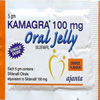 $3.94 for pillBuy Now
$3.94 for pillBuy Now
$46.16 $0.27 for pillBuy NowCialisActive ingredient: Tadalafil
$0.27 for pillBuy NowCialisActive ingredient: Tadalafil $0.68 for pillBuy NowKamagra Oral JellyActive ingredient: Sildenafil
$0.68 for pillBuy NowKamagra Oral JellyActive ingredient: Sildenafil $3.94 for pillBuy Now
$3.94 for pillBuy NowED Sample Pack 1 $2.31 for pillBuy NowBrand ViagraActive ingredient: Sildenafil
$2.31 for pillBuy NowBrand ViagraActive ingredient: Sildenafil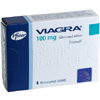 $1.77 for pillBuy NowCenforceActive ingredient: sildenafil
$1.77 for pillBuy NowCenforceActive ingredient: sildenafil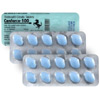 $0.27 for pillBuy Now
$0.27 for pillBuy Now
 $2.31 for pillBuy NowBrand ViagraActive ingredient: Sildenafil
$2.31 for pillBuy NowBrand ViagraActive ingredient: Sildenafil $1.77 for pillBuy NowCenforceActive ingredient: sildenafil
$1.77 for pillBuy NowCenforceActive ingredient: sildenafil $0.27 for pillBuy Now
$0.27 for pillBuy NowStromectolActive ingredient: Ivermectin $2.64 for pillBuy NowClomidActive ingredient: Clomiphene
$2.64 for pillBuy NowClomidActive ingredient: Clomiphene $0.44 for pillBuy NowDoxycycline
$0.44 for pillBuy NowDoxycycline $0.30 for pillBuy Now
$0.30 for pillBuy Now
 $2.64 for pillBuy NowClomidActive ingredient: Clomiphene
$2.64 for pillBuy NowClomidActive ingredient: Clomiphene $0.44 for pillBuy NowDoxycycline
$0.44 for pillBuy NowDoxycycline $0.30 for pillBuy Now
$0.30 for pillBuy NowPropeciaActive ingredient: Finasteride $0.51 for pillBuy NowLevitraActive ingredient: Vardenafil
$0.51 for pillBuy NowLevitraActive ingredient: Vardenafil $1.00 for pillBuy NowAmoxilActive ingredient: Amoxicillin
$1.00 for pillBuy NowAmoxilActive ingredient: Amoxicillin $0.39 for pillBuy Now
$0.39 for pillBuy Now
 $0.51 for pillBuy NowLevitraActive ingredient: Vardenafil
$0.51 for pillBuy NowLevitraActive ingredient: Vardenafil $1.00 for pillBuy NowAmoxilActive ingredient: Amoxicillin
$1.00 for pillBuy NowAmoxilActive ingredient: Amoxicillin $0.39 for pillBuy Now
$0.39 for pillBuy NowViagra ProfessionalActive ingredient: Sildenafil $0.57 for pillBuy NowPrednisoneActive ingredient: prednisone
$0.57 for pillBuy NowPrednisoneActive ingredient: prednisone $0.30 for pillBuy NowBrand CialisActive ingredient: Tadalafil
$0.30 for pillBuy NowBrand CialisActive ingredient: Tadalafil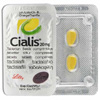 $3.09 for pillBuy Now
$3.09 for pillBuy Now
 $0.57 for pillBuy NowPrednisoneActive ingredient: prednisone
$0.57 for pillBuy NowPrednisoneActive ingredient: prednisone $0.30 for pillBuy NowBrand CialisActive ingredient: Tadalafil
$0.30 for pillBuy NowBrand CialisActive ingredient: Tadalafil $3.09 for pillBuy Now
$3.09 for pillBuy NowDapoxetineActive ingredient: Dapoxetine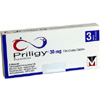 $0.95 for pillBuy NowZithromaxActive ingredient: Azithromycin
$0.95 for pillBuy NowZithromaxActive ingredient: Azithromycin $0.55 for pillBuy NowNolvadexActive ingredient: tamoxifen
$0.55 for pillBuy NowNolvadexActive ingredient: tamoxifen $0.52 for pillBuy Now
$0.52 for pillBuy Now
 $0.95 for pillBuy NowZithromaxActive ingredient: Azithromycin
$0.95 for pillBuy NowZithromaxActive ingredient: Azithromycin $0.55 for pillBuy NowNolvadexActive ingredient: tamoxifen
$0.55 for pillBuy NowNolvadexActive ingredient: tamoxifen $0.52 for pillBuy Now
$0.52 for pillBuy NowCytotecActive ingredient: Misoprostol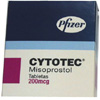 $1.70 for pillBuy NowCialis ProfessionalActive ingredient: Tadalafil
$1.70 for pillBuy NowCialis ProfessionalActive ingredient: Tadalafil $1.20 for pillBuy NowKamagraActive ingredient: Sildenafil
$1.20 for pillBuy NowKamagraActive ingredient: Sildenafil $0.90 for pillBuy Now
$0.90 for pillBuy Now
 $1.70 for pillBuy NowCialis ProfessionalActive ingredient: Tadalafil
$1.70 for pillBuy NowCialis ProfessionalActive ingredient: Tadalafil $1.20 for pillBuy NowKamagraActive ingredient: Sildenafil
$1.20 for pillBuy NowKamagraActive ingredient: Sildenafil $0.90 for pillBuy Now
$0.90 for pillBuy NowViagra Super ActiveActive ingredient: Sildenafil $1.25 for pillBuy NowExtra Super ViagraActive ingredient: dapoxetine
$1.25 for pillBuy NowExtra Super ViagraActive ingredient: dapoxetine $2.86 for pillBuy NowCialis Extra DosageActive ingredient: Tadalafil
$2.86 for pillBuy NowCialis Extra DosageActive ingredient: Tadalafil $2.05 for pillBuy Now
$2.05 for pillBuy Now
 $1.25 for pillBuy NowExtra Super ViagraActive ingredient: dapoxetine
$1.25 for pillBuy NowExtra Super ViagraActive ingredient: dapoxetine $2.86 for pillBuy NowCialis Extra DosageActive ingredient: Tadalafil
$2.86 for pillBuy NowCialis Extra DosageActive ingredient: Tadalafil $2.05 for pillBuy Now
$2.05 for pillBuy NowCialis SoftActive ingredient: Tadalafil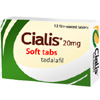 $1.11 for pillBuy NowViagra SoftActive ingredient: Sildenafil
$1.11 for pillBuy NowViagra SoftActive ingredient: Sildenafil $0.91 for pillBuy NowCiproActive ingredient: Ciprofloxacin
$0.91 for pillBuy NowCiproActive ingredient: Ciprofloxacin $0.22 for pillBuy Now
$0.22 for pillBuy Now
 $1.11 for pillBuy NowViagra SoftActive ingredient: Sildenafil
$1.11 for pillBuy NowViagra SoftActive ingredient: Sildenafil $0.91 for pillBuy NowCiproActive ingredient: Ciprofloxacin
$0.91 for pillBuy NowCiproActive ingredient: Ciprofloxacin $0.22 for pillBuy Now
$0.22 for pillBuy NowCialis Super ActiveActive ingredient: Tadalafil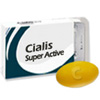 $1.32 for pillBuy NowExtra Super CialisActive ingredient: tadalafil
$1.32 for pillBuy NowExtra Super CialisActive ingredient: tadalafil $3.06 for pillBuy NowFemale ViagraActive ingredient: Sildenafil
$3.06 for pillBuy NowFemale ViagraActive ingredient: Sildenafil $0.68 for pillBuy Now
$0.68 for pillBuy Now
 $1.32 for pillBuy NowExtra Super CialisActive ingredient: tadalafil
$1.32 for pillBuy NowExtra Super CialisActive ingredient: tadalafil $3.06 for pillBuy NowFemale ViagraActive ingredient: Sildenafil
$3.06 for pillBuy NowFemale ViagraActive ingredient: Sildenafil $0.68 for pillBuy Now
$0.68 for pillBuy NowLasixActive ingredient: Furosemide $0.25 for pillBuy NowZoloftActive ingredient: Sertraline
$0.25 for pillBuy NowZoloftActive ingredient: Sertraline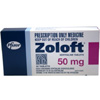 $0.28 for pillBuy NowTadapoxActive ingredient: tadalafil
$0.28 for pillBuy NowTadapoxActive ingredient: tadalafil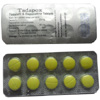 $1.08 for pillBuy Now
$1.08 for pillBuy Now
 $0.25 for pillBuy NowZoloftActive ingredient: Sertraline
$0.25 for pillBuy NowZoloftActive ingredient: Sertraline $0.28 for pillBuy NowTadapoxActive ingredient: tadalafil
$0.28 for pillBuy NowTadapoxActive ingredient: tadalafil $1.08 for pillBuy Now
$1.08 for pillBuy NowPropranololActive ingredient: propranolol $0.27 for pillBuy NowXenicalActive ingredient: Orlistat
$0.27 for pillBuy NowXenicalActive ingredient: Orlistat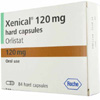 $0.79 for pillBuy NowPrednisolone
$0.79 for pillBuy NowPrednisolone $0.32 for pillBuy Now
$0.32 for pillBuy Now
 $0.27 for pillBuy NowXenicalActive ingredient: Orlistat
$0.27 for pillBuy NowXenicalActive ingredient: Orlistat $0.79 for pillBuy NowPrednisolone
$0.79 for pillBuy NowPrednisolone $0.32 for pillBuy Now
$0.32 for pillBuy Now


